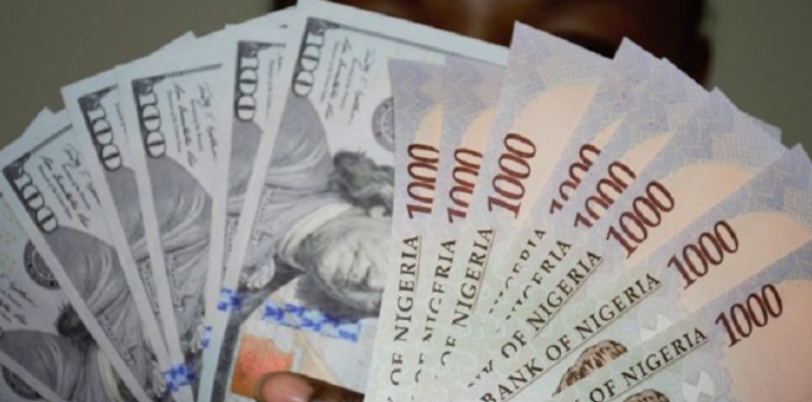The Nigerian naira managed to maintain its value against the US dollar in the black market, although it experienced a slight decline in the official market amidst a backdrop of mixed U.S. economic data.
In the parallel market, the Naira strengthened late on Thursday, rising from N1,105 per dollar on Wednesday to N1,060 against the U.S. dollar. However, in the Nigerian Foreign Exchange Market (NAFEM), the Naira’s value dipped to N1,154.08 per dollar.
According to data from FMDQ, the indicative exchange rate for NAFEM increased to N1,154.08 per dollar from N1,072.74 per dollar on Wednesday.
Despite previous classifications of the Nigerian Naira as one of the worst-performing currencies in February, it witnessed a notable 12 percent increase in value in April.
Goldman Sachs projected that if the Central Bank of Nigeria (CBN) continues to enforce favorable monetary policies, the Naira could strengthen to below N1000 per dollar. The bank emphasized policies such as addressing local dollar scarcity, interest rate hikes, and market stability measures.
The CBN has recently implemented several policies aimed at enhancing market transparency, controlling participant behavior, and stabilizing the foreign exchange market. These include settling foreign exchange arrears to boost confidence, releasing guidelines for International Money Transfer Organizations (IMTOs), and reviewing banking regulations.
Despite this, the U.S. dollar maintained its momentum, bolstered by comments from New York Fed President John Williams suggesting no immediate need for interest rate cuts given the robust economy. The dollar index, which measures the greenback against six major currencies, remained strong, nearing a 5-1/2-month high.
Investor skepticism about potential U.S. rate cuts persists due to ongoing inflation concerns and positive economic indicators, such as strong orders and shipments in the Mid-Atlantic region. However, there was a decline in existing home sales in March, attributed to rising interest rates and property prices.











